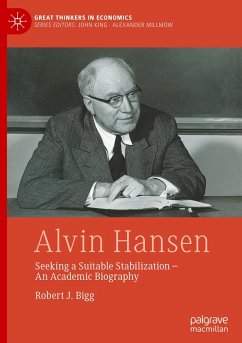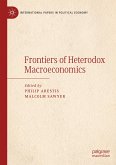This book examines the academic life of Alvin Hansen and his contribution to modern economics. Through tracing the development of his early work and pre-Keynesian ideas, the influence of Keynes and the 1937-8 recession on the direction of his work is explored, particularly in relation to his theoretical backing of the New Deal and subsequent American policy. The subsequent chapters focus on his later work on secular stagnation, savings and investment, American Keynesianism, managing the post-war mixed economy and the often overlooked contributions to global questions and wider aspects of political economy and public policy.
This book aims to highlight the intellectual influence and academic value of Alvin Hansen's work. It will be relevant to students and researchers interested in economic policy, political economy, and the history of economic thought.
This book aims to highlight the intellectual influence and academic value of Alvin Hansen's work. It will be relevant to students and researchers interested in economic policy, political economy, and the history of economic thought.








